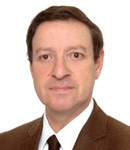
Word from the President


|
ENS conferences are important events for our members. They are a focal point where they meet and exchange their expertise and their latest results in the field of nuclear sciences, as well as general news about all things nuclear. On April 22, I attended the final sessions of the RRFM conference (Research Reactors, Fuels and Materials) in Bucharest. Since questions had been raised by the IAEA about the connection between research reactors and their end users, I spoke about the value of such important research facilities to a major nuclear operator like us at EDF. Allow me to quote my own words: |
“As a major nuclear operator, we use research reactors in France and also in Europe. Sometimes we even go to other continents to use them. I was glad to hear Dr. O’Kelly from Idaho National Lab this morning. We do not use the ATR reactor and the associated fuel cells directly, but we use them through the EPRI Research Organization, of which we are a recognized international member.
We use research reactors first for fuel qualification. Even though this was only one of the items in the table presented by Dr. Ridikas from IAEA, for us it is an important one. We perform load following on the French nuclear fleet and we have a special regulation for pellet cladding interaction (PCI), which we can only fully be qualified in research reactors. We also load MOX fuel in our 24 900 MW units, which are licensed for MOX and we like to be able to perform special measurements for such fuels, even though in an international programme UOX fuel will be the primary interest for most of the other industrial partners.
Of course, we also use research reactors for materials irradiation and qualification. It is no surprise that we spoke at the conference with AREVA about the non-occurrence of flakes in our reactor pressure vessels and, therefore, of the absence of embrittlement problems that potentially arise from such hydrogen flakes. We also gave details about ultrasonic measurement techniques and hydrogen degassing techniques in French steel warehouses. If you follow French media, steel fracture toughness in all kinds of forged steels has become a heated topic.
I am very glad that I came to Bucharest. I could only fully follow 2 sessions, one chaired by Dr Gerstenberg from München, if I remember correctly, and the other by Edgar Koonen, the Program Committee Chairman on International Issues. They were very good sessions, and I learned many things, for which I thank the speakers and the organizers. Research reactors in Europe are important for the nuclear scientific community, and also for the larger industrial community. This is why we believe that your community should be helped and supported.
Thank you”.
Noël Camarcat
President of ENS |

